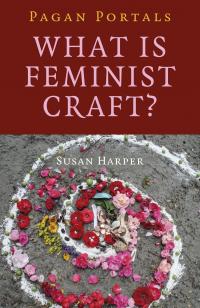
 September in the Wheel of the Year: Festivals Old and New - Lucya Starza
September in the Wheel of the Year: Festivals Old and New - Lucya Starza
The festivals of September include a wide range of annual customs, ancient and modern, quite apart from the Autumn Equinox festival in the Modern Pagan Wheel of the Year. I’ll be writing a blog post about that closer to September 22, but here’s a look at some other magical things to celebrate this month.
The Abbots Bromley Horn Dance
In early September, six deer-men wearing reindeer antlers, a fool, a hobby horse, a bowman and Maid Marian dance around an English village to the sound of a melodian, while local pubs provide other entertainment and refreshment. This annual custom might have its origins in ancient pagan rites to ensure a good hunt. No one knows for sure. Records show it was performed at least as far back as the Barthelmy Fair in August 1226 and has continued annually at least since then. It’s probably older. Carbon-dating showed the current antlers are from the 11th century, but they might have replaced older ones. Whatever the truth, it’s a fascinating event. It takes place on the Monday after Wakes Sunday, or the closest to September 4, in the Staffordshire village of Abbots Bromley. The picture shows the Abbots Bromley Horn Dance players, circa 1900.
The Ludi Romani
The Ancient Romans honoured Jupiter in a religious festival that was also a time for fun and games. The Roman Games originally ran from September 12 to September 14, but got extended from the 4th to the 19th, with the first day honouring Julius Caesar. The games included chariot races, boxing and other contests. You could include games in adaptations of this celebration. The Romans were keen on boardgames such as dice, versions of checkers, and tic-tac-toe. Why not gather with friends to play these or a modern game with a Roman theme, such as Ave Caesar - a fun but ruthless chariot race with simple rules? Don’t forget to raise a toast and say “Ave Caesar!”, then pour a libation to Jupiter, ruler of the Gods.
Star Trek Day
After looking back to the past, let’s look to the future. On September 8, 1966, the first episode of Star Trek was broadcast. It’s celebrated annually. Early episodes had messages about equality, the futility of war, and the importance of thinking for oneself. The crew of the Enterprise offered models for problem-solving through a balance of logical thought, physical action and emotional understanding. The TV series aimed to offer a hopeful example of what centuries to come might be like if humans follow their highest ideals. That’s something we can all try to work towards.
Festival of the Eleusinian Mysteries
In Ancient Greece, the Eleusinian Mysteries were kept secret by the members of the cult that enacted them, but scholars believe they followed the mythic cycle of the Goddesses Demeter and Persephone, and the agricultural year, as well as promising initiates security in the afterlife. A major festival of the Eleusinian Mysteries took place in mid-September, perhaps to give thanks for the harvest. It’s thought the Mysteries involved an initiatory journey symbolising travel to the underworld. Many modern pagan initiations and elevation ceremonies follow that example. This time of year would be ideal to research and read on the subject, especially if you are considering undertaking an initiation.
World Peace Day
International Day of Peace is observed every year on 21 September. It’s dedicated to the absence of war and violence, including temporary ceasefires in battle zones for humanitarian aid. The day was inaugurated in 1982 and is now honoured by nations, political groups, military groups and people all over the world. Whatever your spiritual path, take time to pray, wish, or work towards there being peace throughout the world.
Harvest Moon
While modern witches celebrate all full moons, September’s was of particular importance to our ancestors who worked the land. The full moon at this time of year can be seen almost throughout the night if the sky is clear - from shortly after sunset to sunrise. This allowed people to continue working outdoors when the sun had gone down to bring in the last of the grain harvest. Afterwards there was also light for singing and dancing in celebration.
.
The Chinese Moon Festival
Sometimes called the Lantern Festival or Mid-Autumn Festival, this takes place at the full moon of the eighth Chinese lunar month. It dates back more than 3,000 years and honoured the lunar Goddess. These days it is a festival for celebrating and contemplating the moon. The traditional food for this festival is the mooncake. Mooncakes are often filled with lotus seed paste or bean paste. Some contain salted egg yolks, which are round like the moon.
This is the sixth in a series of posts I’m writing for the Moon Books Blog on the theme of the Wheel of the Year. My posts will be compiled and edited into a book: Pagan Portals – Wheel of the Year. Other books by Lucya Starza in the Pagan Portals series include Candle Magic, Guided Visualisations, Poppets and Magical Dolls, and Scrying. Lucya edited the community book Every Day Magic – A Pagan Book of Days.
Picture credit: John Benjamin Stone - Sir Benjamin Stone’s Pictures - Festivals, Ceremonies and Customs. Published by Cassell & Co. London. 1906
Categories:
0 comments on this article






